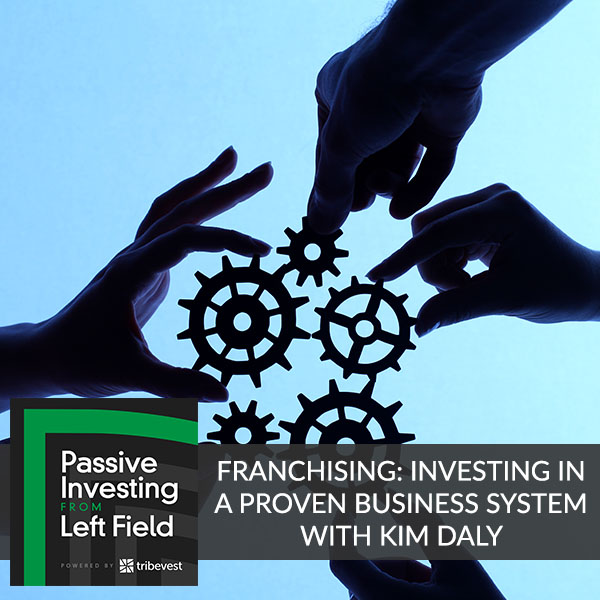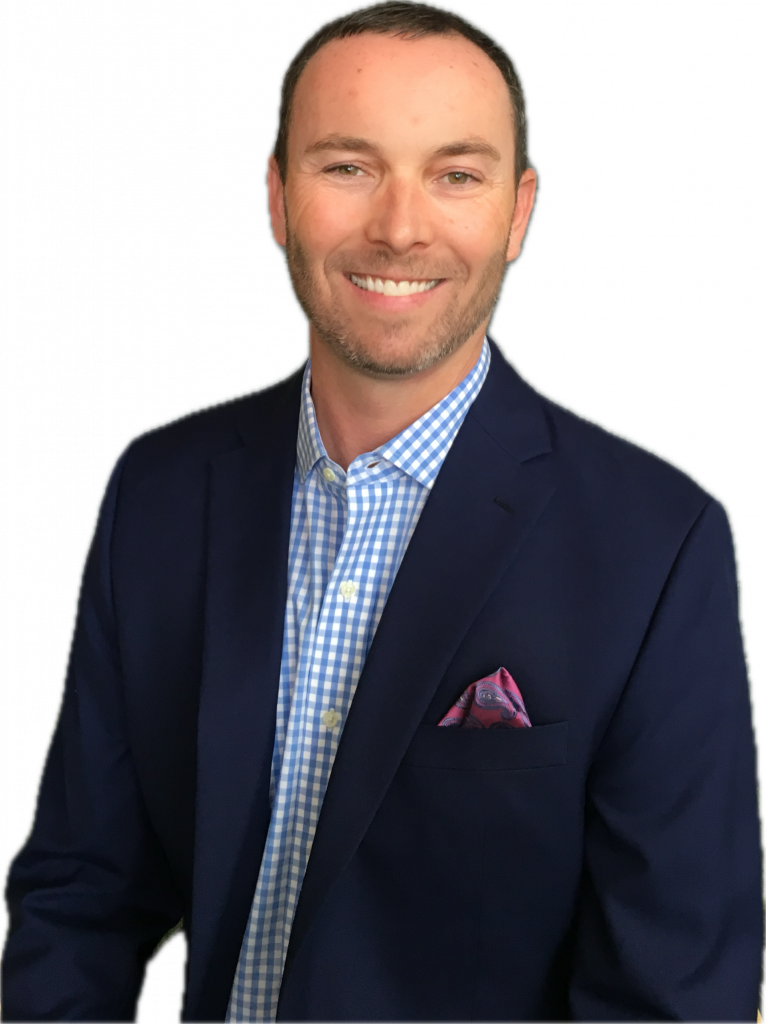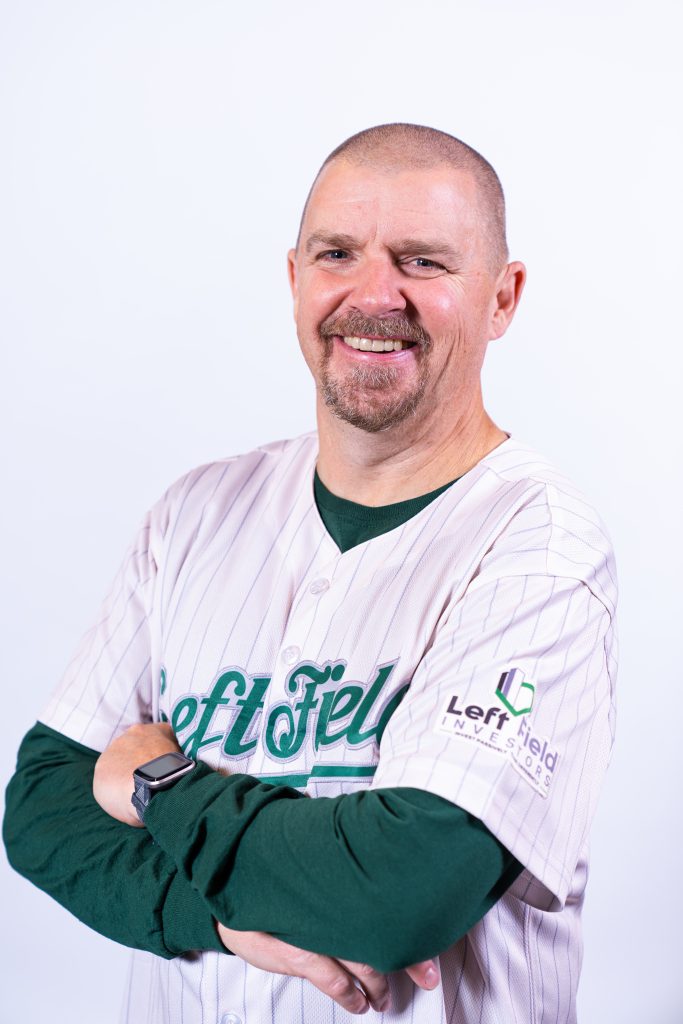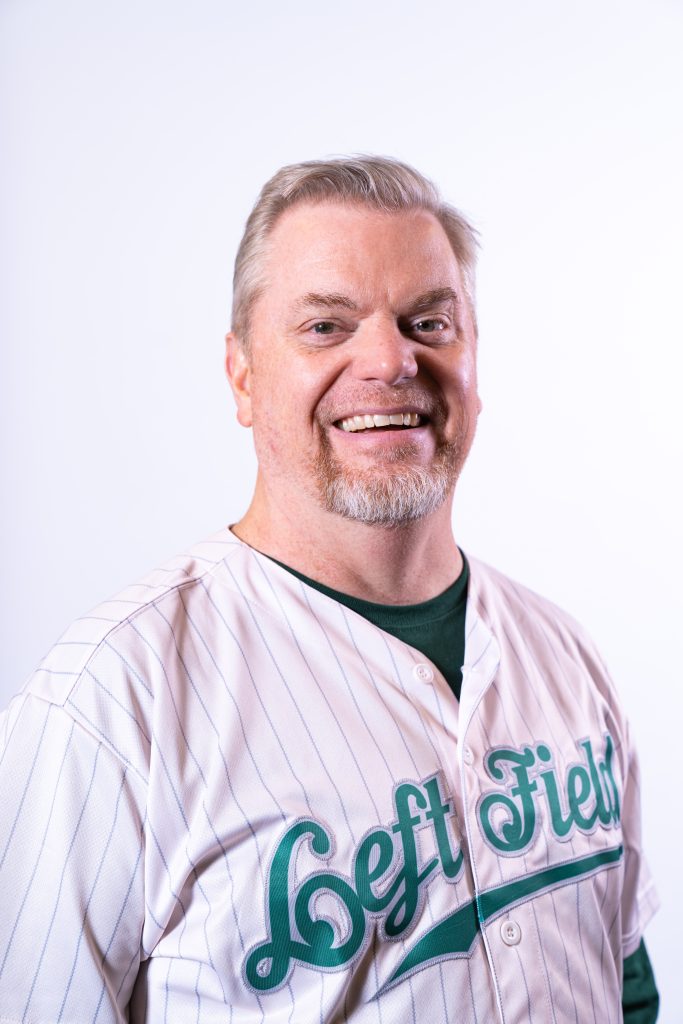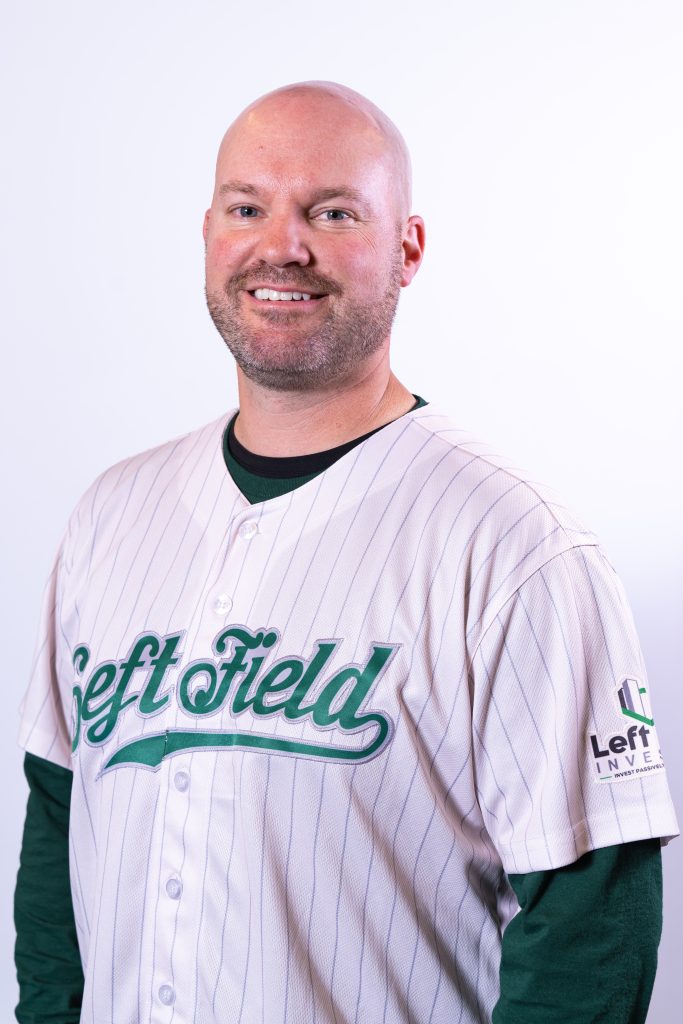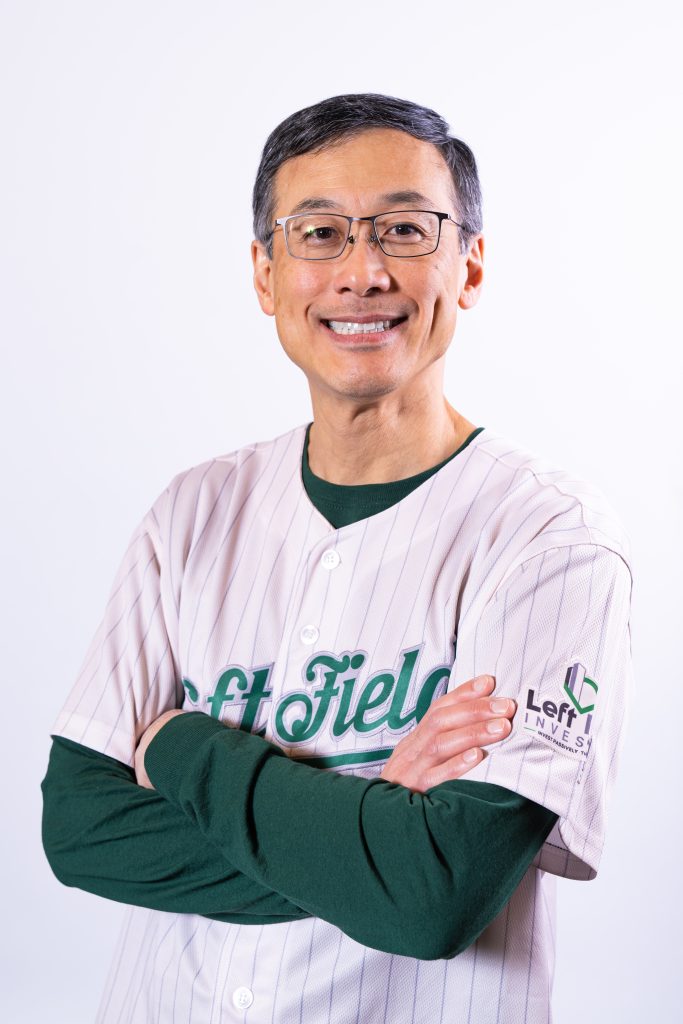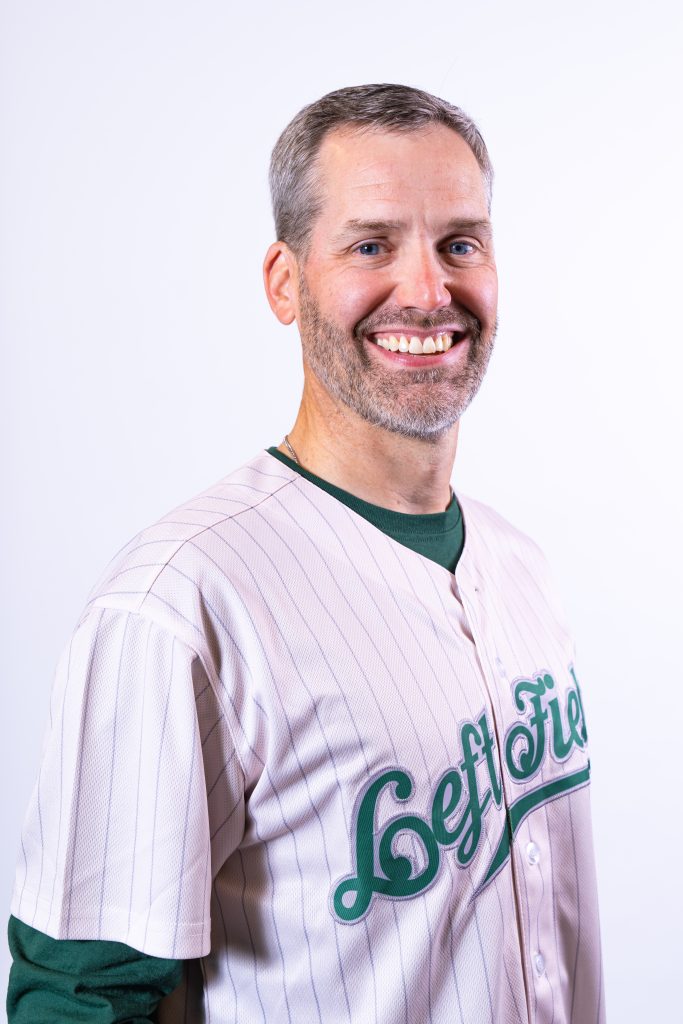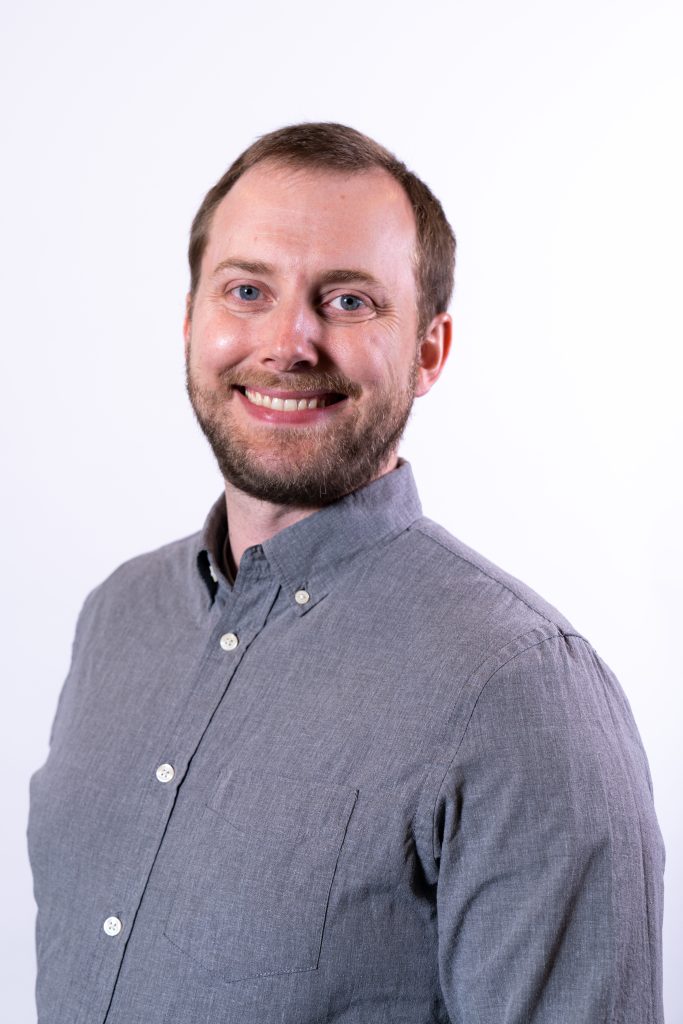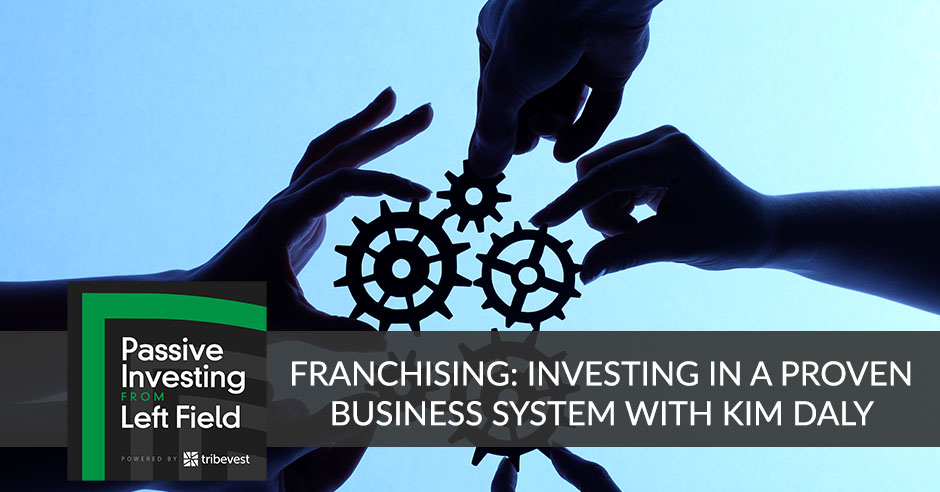
Franchising is becoming a more popular way to start a business. It allows you to invest in an established business system with a proven track record of success. But how can you find the right franchise for you? Tune in today to hear Kim Daly share her insights. Kim is the Franchise Consultant at The Daly Coach, one of America’s Top Franchise Consultants, Founder & Host of KimDaly.tv, and Motivational Speaker & International Best-Selling Co-author. She is also the creator of “The Daly Plan” – a millionaire mindset coaching program that enabled her to build the largest franchise consulting business in the history of franchise consulting. For the past 20 years, Kim has been helping people realize their dreams of business ownership through franchising. In this episode, Kim sits with Jim Pfeifer to walk you through franchising, why it is a good business model for anyone who wants to dive into entrepreneurship, and how you can find the right franchise.
—
Listen to the podcast here
Franchising: Investing In A Proven Business System With Kim Daly
Since you are here, there’s a good chance you’re investing with a group of people. Whether you’re investing with family or friends or like-minded people in the Left Field Investors Community, group investing is a strategy that can get you into more deals, help you diversify, and go beyond what you can achieve by yourself.
Before Tribevest came along, it was difficult to overcome all the hurdles associated with group investing. It was a strategy reserved for the wealthy, but not anymore. Tribevest helps your group with everything from incorporation, collaboration, banking, and equity management tools, all in a single place so you can focus on building wealth with the people you know, like and trust. I’m using Tribevest for all six of my investor tribes. It’s a game-changer. Check them out at Tribevest.com
—
I’m excited to have Kim Daly with us. She’s a Franchise Consultant through her firm, The Daly Coach, where she has many years of experience helping people through the process of exploring and investing in franchise businesses. She’s also the host of the podcast, Create Wealth Through Franchising. We’re excited to have her. Kim, welcome to the show.
Thank you, Jim. I am super excited to be here. We have mutual audiences.
I agree. I am excited about this one as well. I’ve always looked and thought about franchises. I never pulled the trigger, but Ryan Stieg, one of our Left Field Investor founders did and he’s doing great with your help. That’s what got us started on wanting to have you on the show and learn more about franchises. Before we dig into that, we always start with your financial journey. How did you get to be a franchise coach? What’s your financial past to how did you get there? If you could tell us the story, that would be great.
It’s not super obvious how I became a franchise consultant. I was on my way to medical school. I answered a classified ad in the newspaper. That might give away my age. It was for a franchise company. My dad had been an entrepreneur. I had some exposure to the lifestyle of entrepreneurs. When I worked for that franchise company, which is not the one I’m part of now, I knew that I had found my homeland. I grew up wanting to help people. That’s why I wanted to go to medical school.
I found industry entrepreneurs where people help people live and realise their dreams. I was like, “I love franchising.” What did I do? I went out and I became an entrepreneur. Go figure. The easiest people to “sell” on the idea of a franchise are former entrepreneurs. When you’ve done it all on your own, you realize the benefit of having somebody else figure out a little bit of it for you.
I did that for five years and then I came back to the idea that this entrepreneurship thing is pretty lonely. It’s mostly that. There’s nobody beside you that can help you figure out your problems. You’re making it up as you go and I got tired of that. After five years, I said, “I’m going back to franchising.” That’s when I stumbled upon what I’m doing now. It has been several years. This is the greatest business in the world. I swear I was born for this role. I’m blessed to help so many people like Ryan and others. That’s how I became a franchise consultant.
Why do you say it’s the greatest business in the world? I love hearing that. I can feel the excitement coming from you when you’re talking about this stuff. That’s the kind of person you want as your coach or assistant to get you into someone who’s super passionate about that. I love that, but what makes the franchise business so great?
There are two answers to why my business is perfect for me. The greatest job I ever had was being a personal trainer. That’s why I decided to go to medical school. I’m like, “I want to work with athletes. I’m going to go get a medical degree.” I minored in Nutrition and Sports Nutrition,” and I loved coaching people through a process that changed their life.
After I had been an entrepreneur and I clearly saw the value in what a good franchisor could offer you, I was like, “I’m going to get to coach people through a process that changes their life,” but instead of talking about fitness, we’re going to be talking about business ownership, which is something I’m intimately aware of and have tried on my own and now see the value.
[bctt tweet=”You do not have to have industry experience or prior knowledge about a business to become the Rookie of the year or the most successful franchisee in the system.” username=””]
Here’s the thing, I’m a franchisee of a company called FranChoice. I’m supported by a corporate office. I pay the royalty. I’m not just over here saying, “Go be a franchisee.” I walk my talk every day as a franchise owner for many years. I clearly understand the value of the partnership and the culture of having other consultants around me that have over the years sharpened me, taught me, cried with me, and celebrated with me. That’s the benefit.
For the people out there, maybe you’re thinking about diversifying your portfolio and thinking about owning a business, maybe you don’t have a good idea or tried being an entrepreneur like Kim and you’re like, “That is hard. I don’t have the time, energy or money to do that.” You come to someone like me and I can very quickly gather the data that I need and focus on outcomes.
What do you want to achieve through the business? I didn’t grow up saying I wanted to be a franchise consultant. I wanted to help people. That’s what I’m focused on with candidates. What are you trying to accomplish? Are you an empire builder? Are you looking to buy yourself a job or somewhere in the middle? Do you want to build a legacy for your kids? Do you want to build a business and sell it in seven years?
All of these different questions that I would ask a candidate help me with my knowledge of what franchises are out there and what franchisers are looking for. Is it full-time owners versus semi-absentee owners, versus somebody that wants to build and sell, versus somebody that wants to build and hold? I have all that information so you don’t have to do it. I can very quickly bring you to the right companies and then teach you how to explore. I do all that for free.
Can you talk about those companies? I go through a drive-through every now and again. Half the time, it’s a young kid taking my order. The other half of the time, it’s someone older who clearly is like the manager or maybe the owner of the franchise. I don’t know anything about being a fast-food guy. I see it so I know there are other things. This isn’t just fast food. What are our options?
The vast majority of people out there do not know all of the options and the other reason I have a business and a fun one. I helped a chemist buy a roofing company. He’s a Yale graduate. His parents are going to be so proud of him. He’s a Yale MBA and he said yes to a roofing franchise because it’s not about roofing. They were characteristics in his model that led me to the roofing industry, but it’s not about the widget. It’s about what that business is going to create for him and the role that he will play as an owner.
Franchising covers over 80 different industries. At any one time, there are over 3,000 or 4,000 franchise opportunities out there. I am one of America’s top franchise consultants to brag a little bit. I help a lot of people. I’ve placed less than a dozen people into food. You’re going to have to beg me if you want me to show you food. I love sexy fun things like day spas, fitness, and things for an active investor or an active person. They are into those things and are excited to own a business that they’re the ideal customer for. I equally love things like roofing, mattresses, landscaping, pool cleaning or things that are like, “Really? That’s a franchise?” “Yes.” There are franchises for everything.
In a franchise, the idea is that the franchisor has identified a clear customer avatar. They’ve created a marketing plan. That’s what franchises are. They’re marketing systems, whether it’s sales and networking or actual advertising. Some franchisors have call centers. Some franchisors will do the marketing for you, get your phones ring, and then answer your phone. Therefore, you don’t need an office and an admin person.
This would allow you to be a more semi-absentee owner, keeping a job and having other investments or businesses. You’re managing this with more part-time hours because the franchisor is driving the business side. Other franchises say, “Here’s our marketing plan. Here’s how we find our customers. Here’s who our customer is, and then we’re going to train, coach and support you to go out and build that marketing plan locally for yourself.”
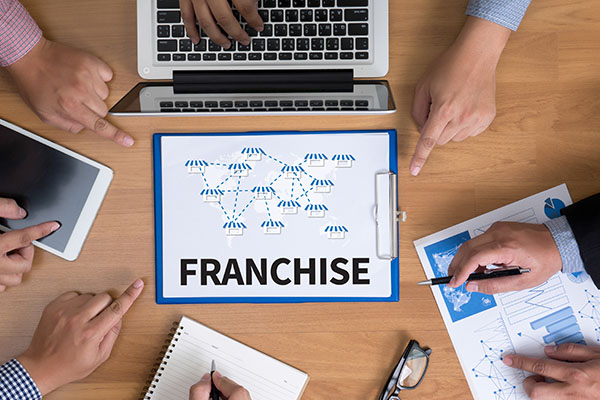
A big part of this is you help and guide someone like me or someone like Ryan to find the right franchise. I assume the chemist didn’t know much about roofing. I know Ryan pretty well, but I don’t see him heading to the Pilates studio every day. How do you figure out what the right thing is for each person? Is it something that, “I have a passion for fitness, so I want to go do a fitness studio?” Could it be, “I know nothing about fitness, but I want to run a business and fitness is a good franchise so I go with that.” How do you pick that? Could you do either? Do you have to be interested in it or you don’t have to be interested in the actual underlying business?
It’s more of a philosophical question. I’ll say a couple of things. First off, you do not have to have industry experience or prior knowledge about a business to go on to become a rookie of the year or the most successful franchisee in a system. If the franchisor needs you to have experience, they will say it. Most of the time they say, “We’re not looking for widget masters, Kim.”
If you’re a handyman running a handyman business, how do you scale that business to a $5 million or $10 million business if you’re trying to work every job? You don’t. We don’t need you to be the handyman. We need you to be interested in construction and have some familiarity so that you’re comfortable managing contractors, but we don’t need you doing the physical labor work.
If you’re a mechanic or you own Supercuts, Massage Envy or a Pilates studio, you’re hiring and creating teams of people. You’re the leader of the organization. You’re working on it while your team works in it. It’s not always. There are some franchisors that are looking for what I like to call chuck in the truck. The guy who wants a simple operation and directly knows his customers. He’s not looking to manage a big team of people. Maybe, he did all of that in his corporate life or he looks at managing people as a big headache, and he prefers to be a one-man band or him and a couple of people.
It’s these characteristics that I’m bringing out of people and then matching the opportunity to that when I come back with the ideas, but you do not have to have experience. The second point of your question is I am not an advocate of helping you buy a hobby. I love fitness and I would love to own a gym so when I broke off and became an entrepreneur, that’s what I did. The reason I got out of it is my own love for fitness and passion for that started to wane. It’s all good when your business is profitable and life is good and you’re not struggling. At some point, if you’re a business owner, it’s going to get real. Now, the place that I go to de-stress, which is the gym, all of my stress is wrapped up in it. Leave your hobby as your hobby and invest in a business because at the end of the day, a business is that.
You’re going to be passionate about the business. Entrepreneurs are in love with their business and they need to be because of their inventors or creators. They’re bringing a story to life. They’ve got to get people to buy into that story. Franchisees are in love with what their business affords, which is money and quality of life. There are a lot of things I’m going to get passionate about if it’s making me the money or buying me the quality of life that I want, and the free time or the flexibility, however that quality of life is defined. There are a lot of things I can probably get passionate about.
Our community is made up of passive investors. We’re thinking about building wealth so we can ditch the W2 or make the W2 optional. I don’t want to run a franchise where I’m sitting in the drive-through every day, passing out burgers. That’s not what you do, but are there different levels of participation? How passive can this get? There’s got to be some that are more passive than others as far as the business types.
Again, that’s why I have a business. It’s so I can lead you to those franchisors. Some franchisors want you to be full-time. You’re an investor. No one is going to care as much as you. No one is going to build it like you are. At least, in the beginning, we want you full-time. If you come to me and say, “I’ve got 15 to 20 hours a week around my W2 job for the first six months or so, I’m willing to roll up my sleeves because I’m trying to get to this outcome. I’m trying to get to where if I can see the business can recover my W2. I’m going to pink slip the W2 and jump into the business.”
I then say, “If the business is running through a manager and people, you’re not going to quit your job and then go running your business. That’s like trading one for the other. That’s dumb.” When you leave your W2 job because your business has created a financial outcome for you. Now, you have more options. Maybe you take that business to the next level. Maybe you come back to The Daly Coach and we find you the next business and you form an umbrella company, and now you have multiple units of one franchise, and then you add on another franchise. That’s that empire builder mentality.
[bctt tweet=”Entrepreneurs are in love with their business and need to be because they’re inventors, creators, and bringing a story to life. They have to get people to buy into that story.” username=””]
In real estate, wealth is created through scale. It’s not about one rooftop. It’s multiple rooftops. It’s the same thing in franchising, but the scale can be through people, trucks, equipment or real estate. It doesn’t always have to be that brick-and-mortar location. To answer your question, I know which businesses are looking for semi-absentee owners and which ones are looking for full-time.
Almost any business, if you think about it, can be run semi-absent. I’ll put it back on you, the owner, if you are a strong enough leader, hire that key person who is you when you’re at your job or somewhere else and you can leave your business in their hands. That’s the big question. If you’re a micromanager, people will be like, “I bought this semi-absentee business but it’s not semi-absentee.” How much of that is on your personality and your inability to leave it alone because it’s your nest egg that’s invested?
Let’s say I’m going to buy a Pilates studio and I’m working with you. Are you helping me find the person to hire so I can go and be passive and they can manage it? Is the franchise helping me? How do I staff it? What’s the support? Is the support coming from you, from the franchisor or both? Can you talk a little bit about that process?
I’m the guide. I’m like the Sherpa on the path to saying yes or no to a franchise. I am not giving any specific information about any franchise. I’m helping gather your data and presenting you the options and then helping you know, “These are the people you should be talking to. This is what you should be focused on.” If you’re looking for funding or outside lending for your franchise, I’m that resource.
The specific question of, “How much support does this franchisor offer me and finding the right employee?” That comes from each specific franchise. The answer to the question is it depends on the franchise. Some franchisors are right in it. They’re like, “We will hire your manager for you if you let us.” Others are like, “This is who we want you to hire. These are the tools that you are out there to help you find that person.” They then leave it to you to do it.
There’s a different investor for each franchise because some people don’t like the franchisor having so much control. They’re like, “It’s my business. I want to hire who I want to hire.” Other people feel, “They’re going to do it for me?” That’s what gives them the confidence that they dare to move forward and invest in the franchise.
Again, this is why I have a business. It’s to identify the kind of investor you are and match you with people. Ultimately, when you invest in a franchise, that’s what you’re buying. We’re not buying widgets. We’re buying people and toolboxes. It’s all about the leadership, the vision, their financial capability to build this brand, and then the tools that they’ve created, marketing, training and technology, that help you say, “I know nothing about this business, but look what they’ve done with these other hundred locations.” You meet some of those owners and say, “Those people sound like me. They’re living the life that I’m trying to get to.” You start to connect the dots between where you want to end up and what this business can afford you.
We don’t want to go into restaurants necessarily. Pilates, roofing, and handyman, what are some other examples of franchises that you do recommend or that you’re aware of? A side question is, what is the absolute most passive type of franchise that someone could own if I want to be as passive as possible?
The first part of that question is there are franchises in so many different industries from pet services to home services. Anything in the home from the inside like full bathroom and kitchen remodels to flooring companies, window treatment companies, painting companies, handyman services, building decks, and repairing roofs, to the outside like landscaping, outdoor lighting, and pool cleaning.

Pools and puppies were the biggest explosions during COVID. Think of all the services like picking up dog poop, fences for the yard for those dogs in those pools, pool cleaning companies, and mosquito spraying because if you’re going to use that pool at night, you got to kill the mosquitoes. Ancillary services that go with those two industries exploded in 2020, then there are B2B companies.
There are property management companies that go into businesses and big commercial buildings, and say, “We’ll polish your marble floors, keep your windows clean, plow your property in the winter, and keep your lights on.” There are HVAC companies. There are security companies that do the keyless entry for government buildings, banks and Federal buildings. These are franchises.
There are cost-cutting franchises where you can walk into a business owner and say, “Would you like to save money? I’m a cost-cutting expert.” You’re not a cost-cutting expert, but through the back end of your franchise, you are a cost-cutting expert. There’s a franchise that repairs the drill that the dentist used in your mouth. All they do is repair medical devices and specifically dentistry tools. It’s a franchise.
How is it a franchise? It’s because there’s a marketing plan. There’s a system for repairing the tool or maybe a national vendor that’s giving great pricing to the franchisees. The perfect person for that would be someone who was maybe in medical device or pharma sales but now wants to do it for themselves and over time get out of the actual selling, and managing doctors and dentists. They’re not doing the handy work. They’re building relationships.
There are kids’ services like karate. I had a huge run with karate during COVID. They outsourced physical education. A lot of schools are cutting physical education, music and art. There are franchises that go in and offer physical education, music and art. Those are three separate franchises. There are tutoring and even day schools. Are you getting the point?
There are so many different franchises. I will ask the low-hanging fruit on your tree, “Are you into fitness? Do you love kids? Do you love seniors?” There are businesses that cater to our aging population. “Do you love dogs?” I’m looking for those nuggets so there can be some connection to the widget. Mostly, it’s about me getting to know the person and then connecting them with my relationships with franchisors and feeling like, “If I put these two people together, there’s going to be magic.”
The chemist who invested in roofing, when I met him, I said, “I know exactly who I want you to meet in franchising.” He ended up going through the process and came back from what we call discovery day, which is where you get to go to the corporate office. It’s the last thing you do. That’s where the franchisor gets to meet you face to face. You get to meet them. You get awarded the opportunity to move forward.
He said to me, “These people are going to be teaching franchising to Harvard students one day.” I said to him, “Now, you’re seeing the world as I saw it on day one when I met you.” It has nothing to do with roofing. It’s everything to do with the people, their vision, and their tools for targeting the roofing industry and his buy-in into that vision.
This probably varies widely, but how much is a typical franchise going to cost me and how long until I’m making some money?
[bctt tweet=”Franchisees are in love with what their business affords, which is money and quality of life. ” username=””]
I didn’t answer your other question about how passive can passive be. This will help me also answer that question. A business is never going to be truly passive unless you hire somebody who you give equity, and if you trust the person then you can be passive. A business needs a leader. Even in something that I would call super hands off like a laundromat, which is a franchise. I do a lot of laundromats with my real estate investors. It’s still going to require five hours a week or so by you or somebody to go in and collect your coins from the machine and make sure that all the equipment is working. This isn’t hard work.
We have a franchise and the best way to describe it is being the landlord of a strip mall. Let’s say that you had ten buildings in the strip mall and all of your tenants were business owners. This is a big capital outlay because you’re building this building from scratch or maybe you’re taking over a strip mall and then redesigning each of your ten units to fit your tenants.
You could be fully rented before you even take over ownership of the property from the bank. You’re kind of cashflow even or cashflow positive. There’s a franchise that is pretty much that business. You’re the landlord to tenants who are business owners. They are long-term renters and you’re collecting rent, which real estate people know how to do. Is it absent? No. Is there a set schedule for an owner? No. What are you doing? It’s making sure your tenants are happy just like you do when you are in residential real estate.
To answer your question, a good franchise consultant will never make earnings claims. I’m not going to tell you how much it’s going to cost to open anything or how much money you can make and by when. That’s not my job but I will gather the data from the people that you’re looking for because there are businesses that are looking for that guy that’s happy doing $500,000 a year netting $100,000 working 40 hours a week. There are franchisors that are looking for that empire builder and that are going to help you build a seven-figure grossing business in the first twelve months. You’re going to be working 20 to 30 hours managing a manager. They want you within five years to have at least a $5 million business.
These are two different mentalities and two different investors. It’s my job. That’s why franchisors pay me. That’s why it’s free because I’m doing all of this pre-qualifying work and mindset work with the candidates. By the time they get to that franchisor, they’re highly focused on the options in front of them. That franchisor has a faster ability to make a connection and see if this person is right for their business.
That makes sense. What are the risks to the franchisee? What am I getting myself into? How many failures have you seen? What caused someone to fail?
People are like, “If franchising is so great then why do franchises fail?” which is the question you’re asking. There are two risks. The number one risk from my perspective with the franchisors that I work with, which in many cases are people I’ve been with for many years. When we get together, it’s like a college reunion. These are my friends. These are family people to me.
These franchisors are not going bankrupt. They’re not screwing people over. They have your best interest at heart, which is why you use a consultant, and don’t go look at Entrepreneur 500 and try to pick a company on your own that you have no bearing of like, “Are these people real?” In every industry, there are good companies to play with and not-so-good companies to play with. I’m how you figure that out.
The failure question is it’s not about franchisors failing, but that’s a risk. If you’re looking at a franchise, you have no context for their background in franchising and how financially solvent they are. When a company becomes a franchise, you’re now in a whole new industry. You need experience. If you want to build the next big American brand, you need experienced leadership. You need people who’ve built a franchise before, and you need money. Like building any business, it takes money to make money. Those things are critical.

If a franchisor is young and pioneering and has a great story, but doesn’t have experienced leadership and enough money, that business is a startup statistic in the making, which is a 90% failure rate before five years. The stabilizing point of a franchise is about 100 units. For the pioneering companies that come to FranChoice, we can help them get to 100 units in 12 months. That’s 30 investors who all move forward with three territories or units. That’s nothing. That’s easy. We can get them to that stabilizing point fairly quickly. They got to get them open, but we can help at least attract the right investors.
The failure question and the equation that I’m looking at is it’s on you, the investor. I know and the franchisor knows our plan works. The question is, “Can you work the plan? Are you coachable? Can you follow somebody else’s lead? Are you properly capitalized? Can you show up every day to your dream and be accountable?” If you already are an investor, a lot of those questions are probably yes versus a W2 employee who has never invested in anything.
There are more risks if this is their first big investment which is why I love working with real estate investors because you’re already in the right mindset. You already understand the accountability. You understand that the more you put in, the more you’re going to get out, but that doesn’t mean time and it also doesn’t mean money. It means energy, focus and clarity.
What are some of the mistakes you see franchisees or franchise investors make that might cause them trouble making a profit or might make their exit earlier than they otherwise would have?
It’s going rogue like, “The franchisor said to do it that way, but I have a better way.” Why are you paying fees to a company if you’re not going to do what they suggest you do? I’m not saying like, “Roll over and go, “Okay. You said to do it, so I’m going to do it.” You can question to understand and have context. Maybe they’ve tried it the way that you think is better. We already know that doesn’t work and here’s why. The time to do that is before you say yes. After you’ve said yes to the franchise, hopefully, you check your ego at the door and say, “I’m going to follow your lead. That’s why I’m paying you for your processes not to go reinvent the wheel.”
Probably the biggest thing is people realizing, “I’m not as coachable as I thought I was.” That’s hard. If you’re an experienced investor or very accomplished in your professional career, that goes right to the heart of that conversation of, “It’s almost better to buy a franchise in an industry you know nothing about,” because the more you know how coachable you are going to be.
I love to think I’m coachable. I pay a personal trainer and I was a personal trainer. My personal trainer was sitting behind me and was like, “She’s not coachable.” There are a lot of days when I’m like, “Why are we doing that?” He’s like, “Shut up and do it. You’re paying me.” That is that. Also, money or not having enough financial capability. The franchisor is going to want to see what you have financially and make sure that they don’t award you a franchise that you can’t afford. How you spend that money is on you. It’s being responsible.
I would say it’s money and not following the process. My process is about 1 to 2 months. I work with people for about six weeks and I’m good at getting people confident to a yes. If you’re going to figure out that franchising is not for you, you’re probably going to figure that out in my process within about two weeks. That’s many years of experience and understanding how to front-load the process so that you take yourself out and don’t waste six weeks of your life to say, “This isn’t the right thing for me.”
I can have you to that confident yes in about 1 to 2 months, and then it’s just a matter of you showing up and doing what you said you would do in due diligence. That’s the success formula. I want my candidates by the time they get there to feel like it’s more irrational that they would fail than they will succeed. The level to which they succeed will depend on them.
[bctt tweet=”The first year of business ownership is like a foundation. And then, once you get the foundation, you’ll spend the rest of your life as a business owner mastering the art.” username=””]
During the process, I share a lot of my own experiences. For eight years, I was an average-performing consultant in my franchise. In 2011, I decided to set my goals a little bigger and get clear on a few things in my business. It was more hypothetical at the time like, “What would happen if?” I put my head down and for one year, I plowed forward.
In January of 2012, I made history in franchise consulting. I had built the largest franchise consulting business in the history of my industry. That’s awesome. I don’t want to be a one-hit-wonder. What did I do? Now, everybody is looking at me and especially, there are a lot of men. They’re like, “This girl beat us.” Now everybody is coming after me.
I had to study all of my numbers and analyze them by focusing on that one thing, what did I do? That was back in 2012. It has been several years. The first year of business ownership for me was eight years. It is the foundation. Once you get the foundation, you’re going to spend the rest of your life as a business owner mastering the art. That’s what I’ve been doing for the last several years, mastering the science of my business, which is an art.
I share those principles with my candidates so that you can avoid those eight years. Sometimes experience is the only teacher. You just got to do it. Do it the hardest way before you go, “Okay.” If I can help you with my Daly coaching, that’s what I’m bringing to the table for my candidates on the back end. It’s not just showing you companies and teaching you how to investigate. It’s teaching you how to be a history maker in your franchise. That’s my sweetest spot. Ryan Stieg will tell you that.
I want to inspire the biggest dreams in every single person. If someone says, “I’m making $50,000 a year,” I’m fine with that but I’m smiling ear-to-ear because I’m like, “I’m going to blow that out of the water.” It’s not big enough and you’re thinking too small. It’s as easy to make $1 million as it is to make $50,000 when you know the formula. Let’s go for the million. That’s the attitude and the mindset that I bring to my candidates. Whether they buy into it or not, I always say, “This is free advice. You’re not paying me for this. If you’re like, “Go fly a kite, Kim,” I’m not offended.
Our group is mostly passive investors in real estate. When we look at a deal, we start first with a sponsor. We evaluate and vet them. We then look at the deal and analyze that. I know you vet the sponsor, but how do I vet the sponsor for myself, meaning the franchisor, to know that they’re the right match for me? I know you’ll take us through the process, but as a first-time investor, how do I get the courage to make this leap and know, “I’m now a Pilates guy?” How do I get there?
Part of it is that I’m not just going to bring you 1 or 2 companies. I’m going to bring 3 to 5 so that we can compare and contrast. I call this a courtship leading to a marriage and it starts with a blind date. We have some fun, dusting off your dating skills. I say, “You can’t say no, you just got to go. You told me you’re trying to find a partner. I’m setting you up for some blind dates. Don’t prejudge based on the name of the company,” because what you do as an investor in that company is different than your assumption about that widget in the marketplace as a consumer.
Ultimately, we have to understand that it’s not just about who the customer is but how many customers I need to make that kind of money. People are like, “It’s so saturated.” You don’t need everybody. What if you go in and you find out that with 50 people, you have a $1 million business? Are you worried that there are twenty competitors around you? If you don’t believe you can get 50 clients, that’s a bigger problem. You need some competitive spirit.
We’re comparing in the beginning, “How does it feel?” From there, it’s just coaching. I start teaching you what to focus on in the legal documentation. As part of the process, we’re going to interview other franchise owners. One of the greatest parts about investing in a franchise is the validation from all the other people who have already dived off this diving board.

They’re going to validate to you that that safety net is there and that they’re happy. Knowing what they know now, they would 100% do it again. They’re reinvesting money to open multiple units, “I got out of the gate a little bit slow but dummy me, I was trying to do it my own way, and then I started doing it the franchisor’s way and this is what happened.”
The candidates are going to be able to hear those stories. What happens is you find alignment. You find people that are telling your story. You’re like, “These people sound like me.” That’s when you start to get the confidence. By completing the entire process, going all the way to discovery day, that’s when you have enough information to say yes or no.
The tendency is I find people trying to rush that yes and the only thing they want to say is no because they don’t have enough information to say yes. Let the process unfold. There’s no rush to the altar. We’ll get there in due time. It’s only 1 to 2 months. We’re not going to be here for six months. There are about 4 to 6 steps and it’s about 1 per week. We check them and move on to the next one, then the story starts to build.
The fun part about what I do for people is as you’re ready to do breakup work, I do that for you, so you never have to let anybody down. Oftentimes, candidates will carry two brands all the way to the end, and then they feel bad, “This person has invested so much time with me.” They can tell that the franchisor is fully bought in. They’re like, “I don’t want to let anybody down.” I’m like, “Don’t even worry about it. It’s a numbers game for them to some extent. They’re going to be heartbroken because they love you, but they know they’re going to get another lead from Kim Daly. I’m going to break up with him for you. You get to keep moving forward.”
It’s more by comparison. Maybe if you interview Ryan about the 3 to 5 companies that he looked at and when in his process did he realize that exponential fitness was his partner. He may have a perspective that can clearly answer that question for you, but it does come through the process. If it doesn’t, that’s fine too because this isn’t about pushing everybody to a yes. It’s about exploring. You don’t know unless you’re willing to ask some questions.
Investing in a franchise is the logical thing to do when you’ve asked enough of the right questions, and I’m going to teach you what the right questions are, and you’re satisfied with enough of the answers. Nothing is perfect. You’re never going to love every single thing about the business. It’s the same thing with any real estate deal. There are always going to be parts where you’re like, “The majority of what I’m trying to accomplish can be done here,” and that’s when you say yes. Also, the timing has to be right.
That’s a great explanation there. Are some franchises better in specific markets than others? Does it matter where I live? If I’m stuck in Montana, does that mean the only thing I can do is Pilates? That’s a joke for Ryan. Are there different franchises and different places that do better than others?
There are franchises that are going to work better in a bigger city or bigger demographic, but that’s all the work that I do. For the 3 to 5 brands that I bring to candidates, I’ve already checked the territory to make sure it’s viable and open. I don’t want you traveling 30 minutes to an open territory because somebody else already bought your backyard. The answer to that is yes, but all of that would be done before.
There are franchises that work in small markets. There are franchises that work in big markets, but the vast majority of franchises work in any market. In my opinion, it’s a limiting belief that many candidates will put on their investigation, even some of my own candidates, to say, “That doesn’t work in my backyard,” and they may not buy it. It’s not the right investment for them, but maybe a year later, they’ll be like, “Wow. That’s here.” Somebody else saw that it was the right investment for them.
[bctt tweet=”Investing in a franchise is the logical thing to do when you’ve asked enough of the right questions and you’re satisfied with enough of the answers.” username=””]
There are a lot of changes going on in the economy including interest rates, inflation, and all that. Starting a franchise now, is it a good idea? Is it the perfect time? Is it a horrible time? What do you think about matching the timing of buying a franchise with what’s going on in the economy?
A long time ago, when I first got into franchising, one of my first mentors in the business taught me that in good times and bad, the franchise industry grows. What people invest in and their motivations for investing will change. At the end of the day, they invest. Having been a franchise consultant for many years and through ’08, ’09 and ‘10, that’s when my business first took off.
Through the pandemic and now, my business has continued to grow. I’ve completed my best six months ever in the first six months of 2022 in several years. The answer to that is it’s always a good time. If you’re ready, let’s go. If you want to make it about the economy, whether it’s a recession or not, chances are you’re going to use that as the limiting belief to not move forward. That’s okay, I’m not going to make you wrong for it.
In the pandemic, we saw the shift happen from big brick-and-mortar retail things to home services because now we’re all at home. A lot of home services were in demand now like renovating our spaces, creating offices, and all the stuff that goes along with that. As I already mentioned, pools and puppies and all the stuff that goes along with that.
What people were investing in during the pandemic switched a little bit in some cases, not all, but they are still investing. What I mean by your motivations may change is in a good economy, people are wealth-building. They want a bigger piece of that American pie. They’re looking to invest for those reasons. In a bad economy, they fear losing their job. They feel the instability. They want to feel in control. They turn to business ownership to say, “I can do this for myself.” Their motivations may be different but they still invest.
The last question on franchising, I’ve created a successful franchise and I’m a few years in. I decided, “I’m done.” Can I sell my franchise? What’s the exit?
I coach every candidate to the exit. I believe that businesses are built to be sold. Sometimes people are legacy builders and they are trying to build something that they pass on to their kids. I say, “Let the legacy to your kids be the role model.” That dinner conversation changes because now you’re a business owner and you’re not talking about salary and benefits. You’re talking about wages or employees and your ROI on your business. Let that lifestyle that you’re showing to your kids be the legacy so that they want to go own their business instead of work for somebody else.
You can 100% sell this business. It’s your entity. Franchising is controlled by the Federal Trade Commission and all franchise businesses must produce what’s called a Franchise Disclosure Document. This is a Federally mandated document that I will coach you through. I call it the prenup to the marriage We’re not going to focus on the prenup until we find a marriage that we’re leaning into. Inside this franchise disclosure document, there’s a whole section on how you sell your business, what you’re obligated to do to the franchisor, but how you can sell it. You can sell it for any multiple that you can get.
There are certain industries that have been known to get very substantial multiples upon exit. Private equity loves established franchises. If you are in a space like senior care and let’s say that you’ve built over 7 or 8 years a substantial $5 million a year business where caregivers are going into the home, delivering medical and non-medical care to our aging parents and grandparents. That’s a substantial business that a private equity company in a medical space, with all those caregivers on staff and all the protocols and procedures in place, would probably come in and pay you some multiple to go away.

Knowing what the investor wants to accomplish upfront, that’s my job. Where are we going with this business? I can lead you to those industries that I know, “You want to build and sell to more of a rocket ship in 7 years versus you want 10 to 15 years sustainability.” We may not be talking about fitness. We may be talking about roofing or mattresses. I have a new mattress business. I’m obsessed with it.
This has been fascinating. I’ve always wanted to talk about franchises. I appreciate you being on the show, but the last question I usually ask is, what’s a great podcast that you listen to? You cannot use Create Wealth Through Franchising because that’s your own show, but what’s another one you like to listen to?
I’m sure like you and many of your investors, I listen to a ton of real estate investing shows. I don’t want to like lead your people down another rabbit hole away from yours, but I love Breakaway Wealth by Jim Oliver. He became my personal mentor. I got involved in infinite banking through Jim and his team. I’ve also learned a ton and been offered some great opportunities to invest with Chris Larsen. His podcast is called Next Level Income. Chris and I have become great friends. I’m involved in real estate syndication through him for the first time. Many of his clients have come to diversify and become franchise owners. Those are a couple of my favorite shows.
That’s excellent. Thanks for sharing that. How can people get in touch with you if they want to contact you? What’s the best way to do that?
I do have a podcast called Create Wealth Through Franchising. You can find that on Spotify and Apple, but you can also find my podcast on my YouTube Channel. I am infinitely excited and super passionate about my YouTube channel, which is my name, KimDaly.tv. Please check out my YouTube channel. I have over 300 videos on all things, franchising, business ownership, and mindset coaching. I even have interviews with franchisors and their franchisees. You can learn so much right there on KimDaly.tv.
Thank you so much for being here. This was interesting. It’s a little bit out of the left field from what we normally do, but that’s why we’re here. We’re Left Fielders and that’s what we do. Thank you very much. It was a pleasure.
My pleasure, Jim. Thank you.
—
I enjoyed that conversation with Kim. She is totally passionate about franchising. That’s the kind of person you want working for you. If you’re looking to invest in a franchise, you want someone passionate about helping people and about franchising that they’re going to fit you with the right one. Some of the things she said are it’s about what the business does for you, not what business it is. It doesn’t necessarily have to be something you know about or something that you’re interested in. It could be something that you’re going to manage and hire others to help you.
You have to think outside of the box. One of the things that Kim helps you with is trying to figure out the best situation for you. Once you are in the franchise and you own it, you want to be working on the business and then hire your team who’s going to be working in the business. That’s the way to make this more passive.
She was very open. This isn’t completely passive. This isn’t like what we do in normal real estate syndication, where you do a little bit of work upfront and then you invest your money, and then you just collect. You’re going to have to be at minimum working 5 to 10 hours a week on this business, but there’s opportunity there. I couldn’t believe all the franchise opportunities she was talking about.
You look at every different business that possibly could be a franchise so she can help you find ones and find a fit. It might surprise you what you end up with. The key to all of this for me is if you’re doing something like this that is new and seems scary, have a Sherpa or someone passionate to guide you through it, whether it’s Kim or somebody else.
Kim has that passion and has helped a lot of people. She has helped someone in our community, Ryan, get started. That’s a great place as we talk a lot about trust transfers. He had a good experience. If this is something you’re into, I recommend you talk to Kim and maybe another franchise consultant as well. Make sure that you find a good match because the key to being successful in opening a franchise would be finding someone who is an expert who can help you along the way.
That’s exactly what we do in this community. We find people that can help us learn about new sponsors, new asset classes, and get into new deals. It’s no different here. Finding trusted partners and a community is the key to financial success. That is the one thing I’m pretty certain of. If you’re going to start looking for franchises, Kim Daly is a great place to start. That’s it for this episode.
Important Links
- Tribevest
- The Daly Coach
- Create Wealth Through Franchising
- FranChoice
- Breakaway Wealth
- Next Level Income
- KimDaly.tv – YouTube Channel
Our sponsor, Tribevest provides the easiest way to form, fund, and manage your Investor Tribe with people you know, like, and trust. Tribevest is the Investor Tribe management platform of choice for Jim Pfeifer and the Left Field Investors’ Community.
Tribevest is a strategic partner and sponsor of Passive Investing from Left Field.

